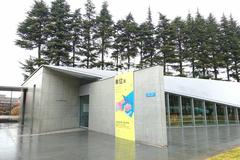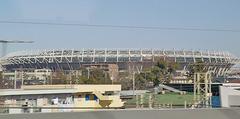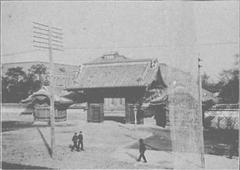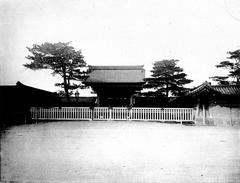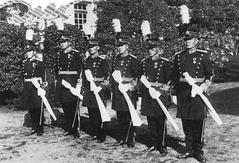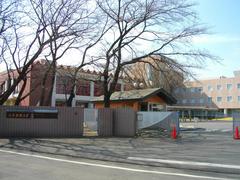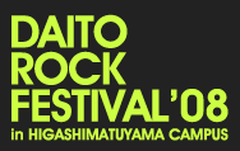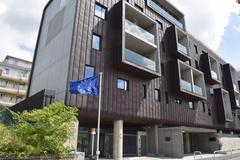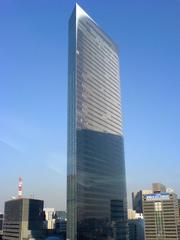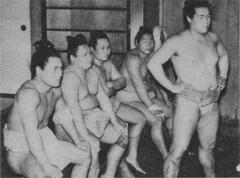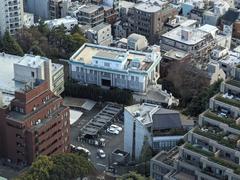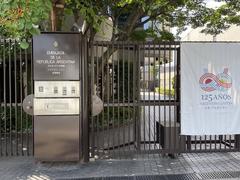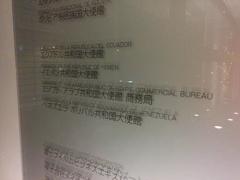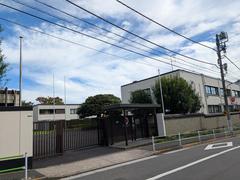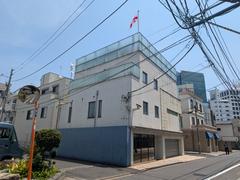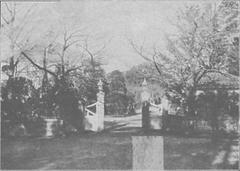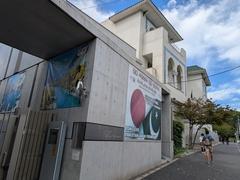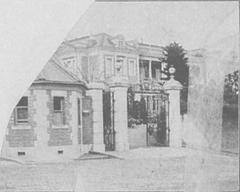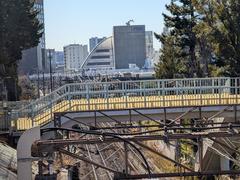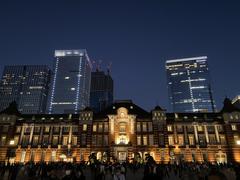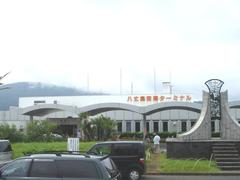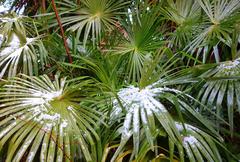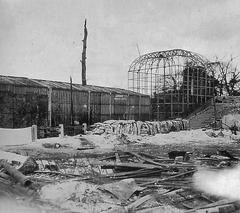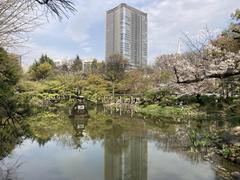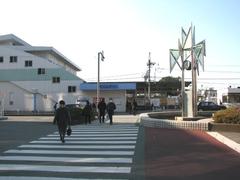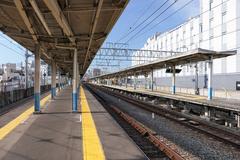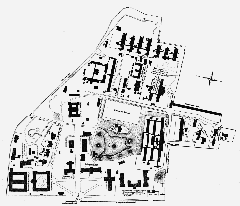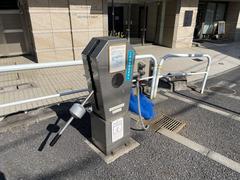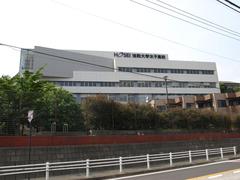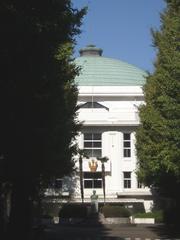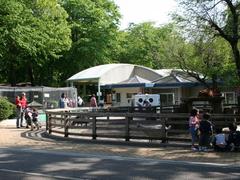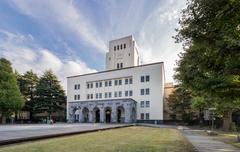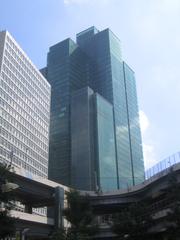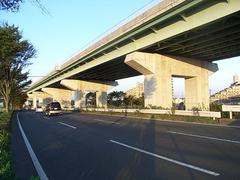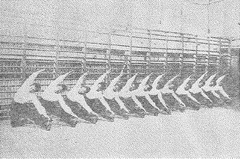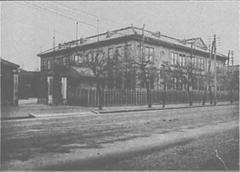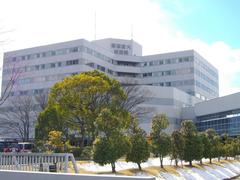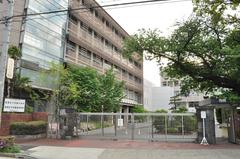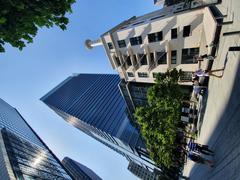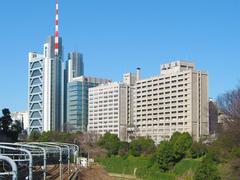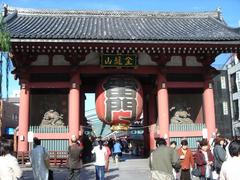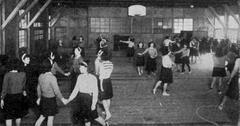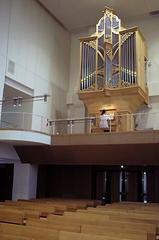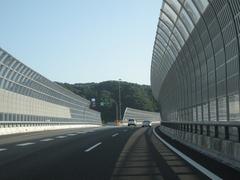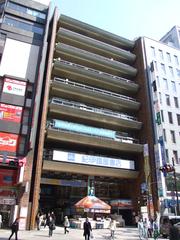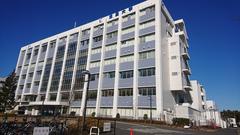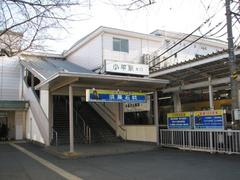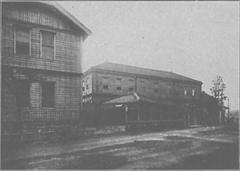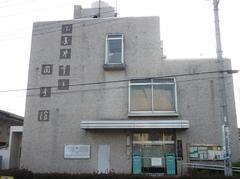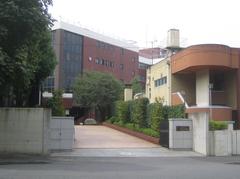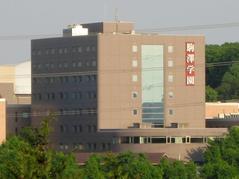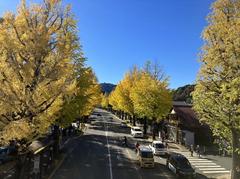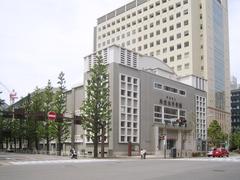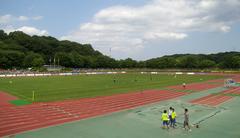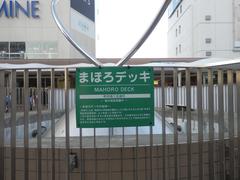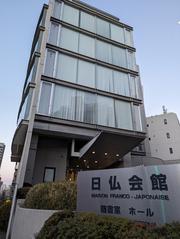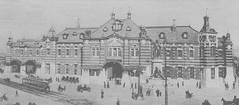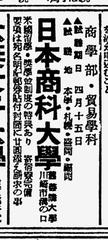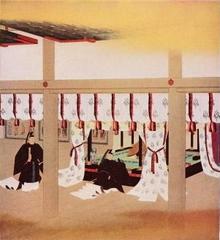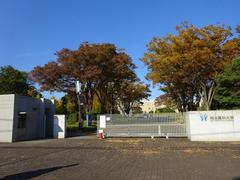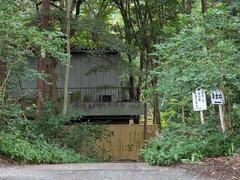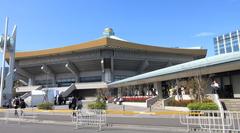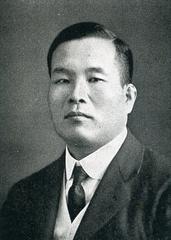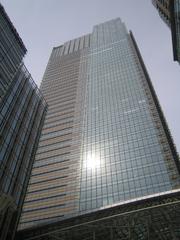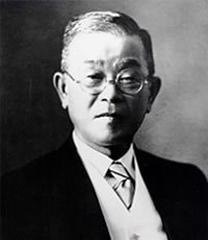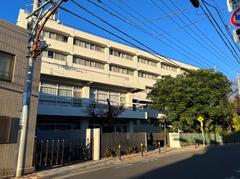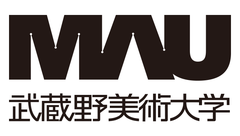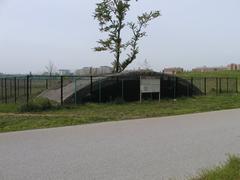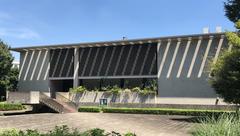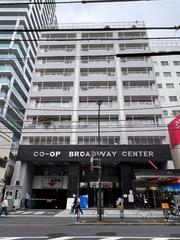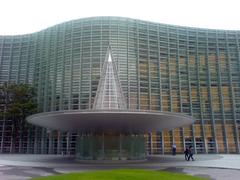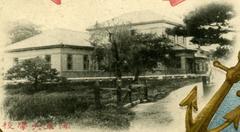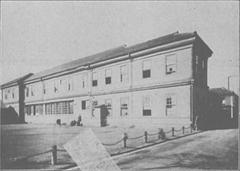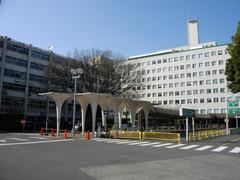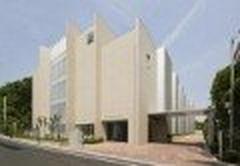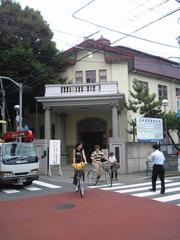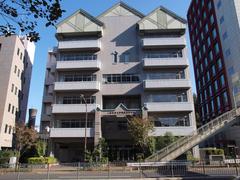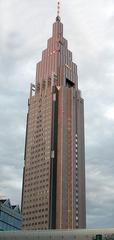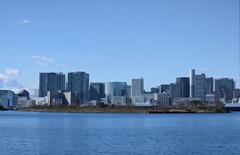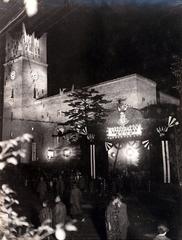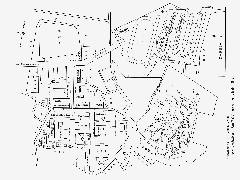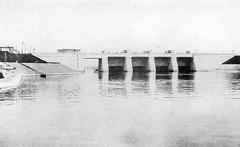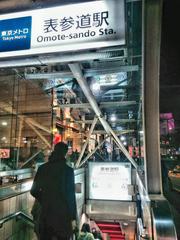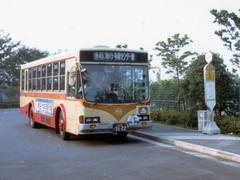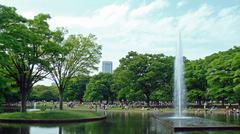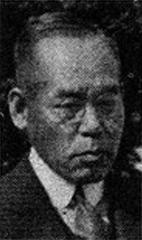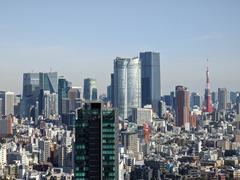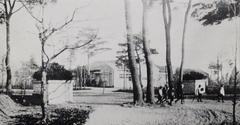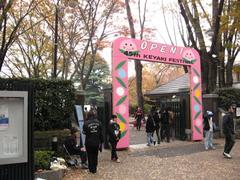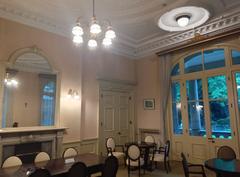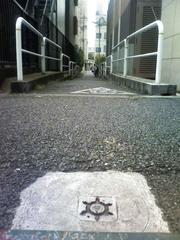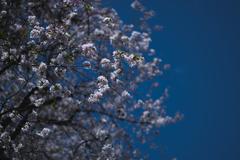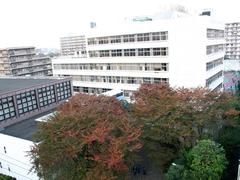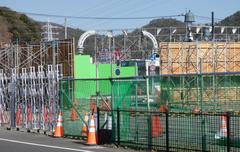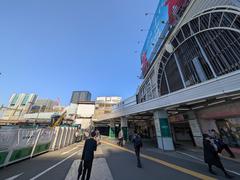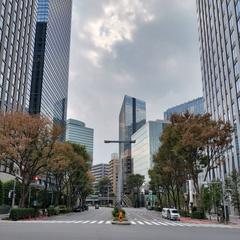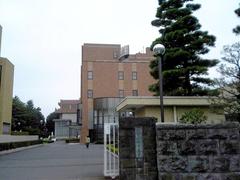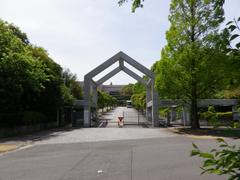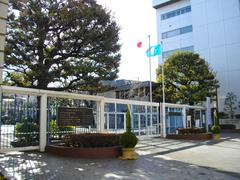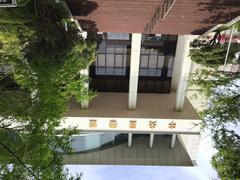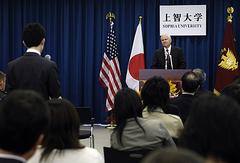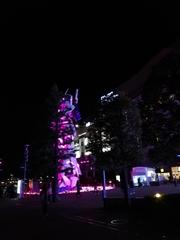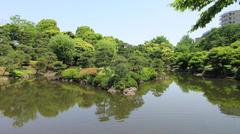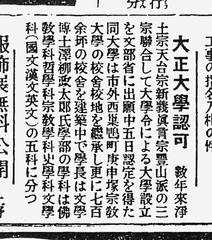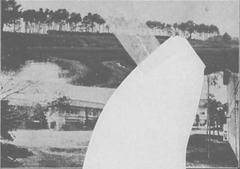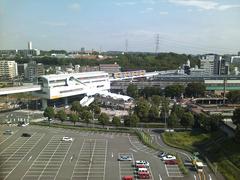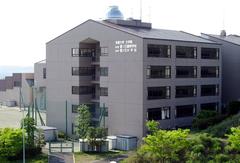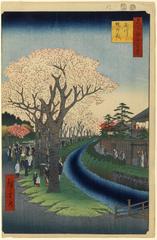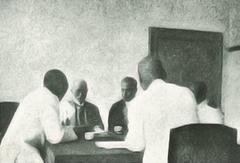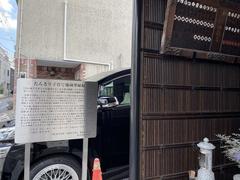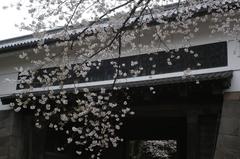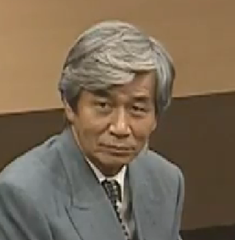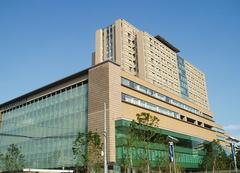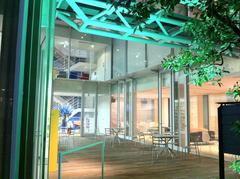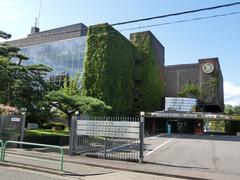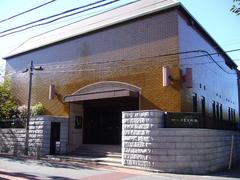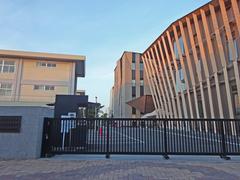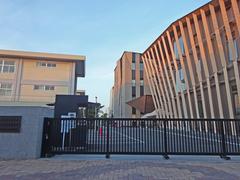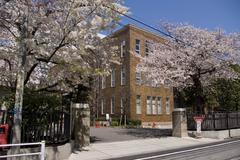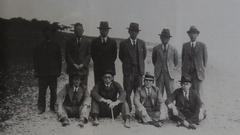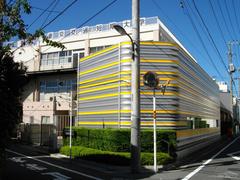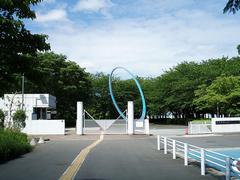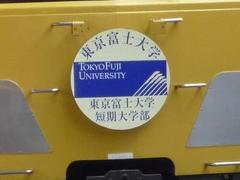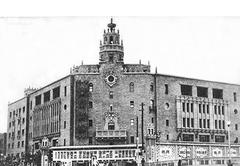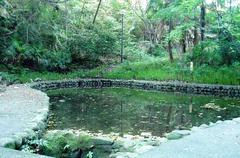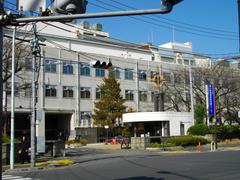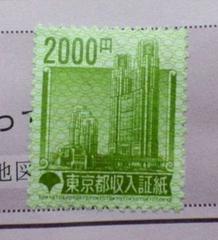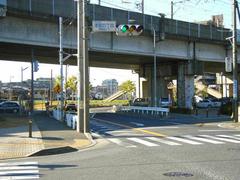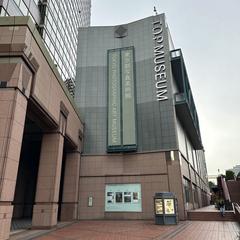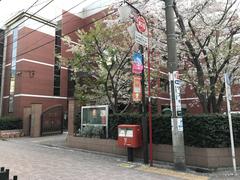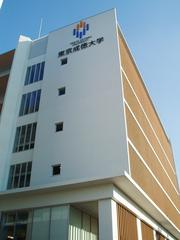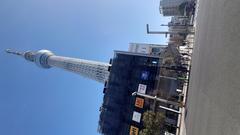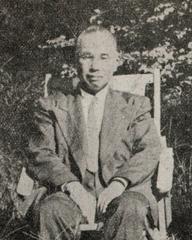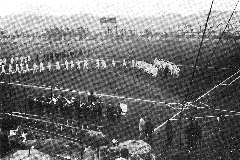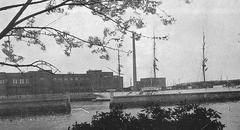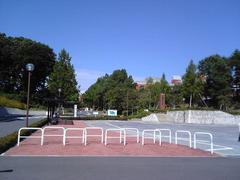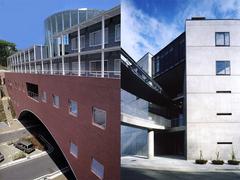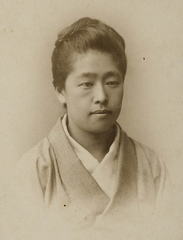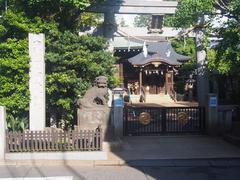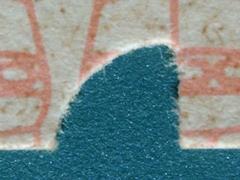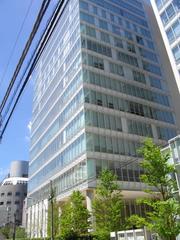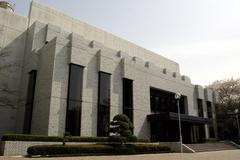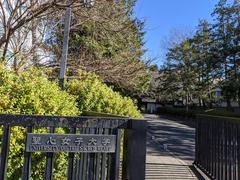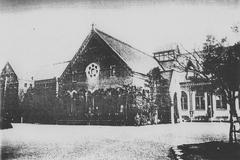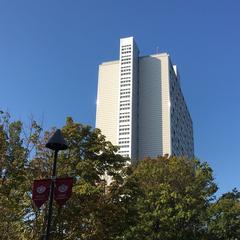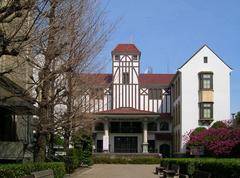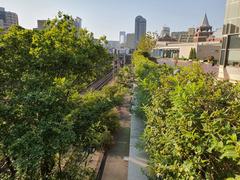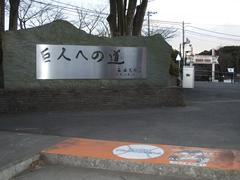Shizenkan University Tokyo: Visiting Hours, Tickets, and Guide to Historical Sites
Date: 04/07/2025
Introduction to Shizenkan University
Shizenkan University, officially known as the Graduate School of Leadership and Innovation, is a forward-thinking graduate institution in Tokyo’s historic Nihonbashi district. Established in 2018, the university is dedicated to cultivating “whole-person” leadership by merging Eastern philosophies and Western business education. Its mission is to develop leaders who can address complex global challenges through innovation, ethics, and cultural wisdom (Study in Japan, Shizenkan University - Who We Are).
The bilingual curriculum (English and Japanese) is designed for working professionals and is delivered in a modern campus environment located within the Nihonbashi Takashimaya Mitsui Building. The university’s strategic location provides access to Tokyo’s rich cultural heritage, including the iconic Nihonbashi Bridge (Wikipedia, Nihonbashi Bridge Visiting Guide).
This guide offers an in-depth overview of Shizenkan University’s philosophy, academic programs, admissions, visitor information, and the cultural context of its Nihonbashi surroundings.
Origins and Establishment
Founded in August 2018 by Tomoyoshi Noda, Shizenkan University grew out of the Institute for Strategic Leadership (ISL), a non-profit that has provided executive education in Japan since 2001 (Wikipedia). The university’s mission is rooted in ISL’s vision of developing holistic leaders who blend intellectual rigor with emotional intelligence and ethical values. Shizenkan was established to address the rising demand for global-minded, innovative leaders for the 21st and 22nd centuries (Study in Japan).
Founding Philosophy & Educational Model
Whole-Person Leadership and Human Sustainability
Shizenkan University positions itself as a “Business School for the 22nd Century,” prioritizing comprehensive leadership education that balances technical proficiency with ethical responsibility and social impact. The curriculum nurtures intellectual capability, emotional intelligence, and sustainable leadership (Study in Japan).
East Meets West: Integrative Approach
Shizenkan blends Western analytical and business frameworks with Eastern philosophy, including mindfulness practices and the concept of symbiosis with nature. This unique fusion shapes leaders who are reflective, virtuous, and globally attuned (Study in Japan).
Innovation and Societal Impact
Leaders at Shizenkan are equipped to address pressing issues like climate change, social inequality, and ethical dilemmas. The university’s curriculum emphasizes innovation for the greater good, preparing graduates to create sustainable social and business value.
GLOCAL Vision
Shizenkan’s “GLOCAL” philosophy combines global vision with local engagement. The university maintains partnerships with institutions worldwide, such as IESE Business School in Barcelona and SOIL in New Delhi, facilitating joint research and exchanges. Locally, Shizenkan actively collaborates with Tokyo’s business and cultural community (Study in Japan).
Academic Programs and Curriculum
Program Structure
- Degree: Two-year MBA in Design and Leadership for Societal Innovation (part-time, evenings, and weekends)
- Languages: Bilingual (English and Japanese)
- Faculty: 58 members, including 14 full-time and 44 visiting professors from diverse fields (Simple Wikipedia)
- Curriculum: Integrates business, liberal arts, design, and psychology, fostering both analytical and creative skills (Shizenkan University - Program)
Core Areas of Development
- Intellectual Capability: Analytical and strategic thinking.
- Emotional & Social Intelligence: Self-awareness, empathy, and communication.
- Ethical & Sustainable Leadership: Responsibility towards society and the environment.
Experiential Learning
Students participate in lectures and workshops with global business leaders, entrepreneurs, and academics. Optional field studies offer practical experience in social innovation projects.
Student Life and Diversity
The Class of 2025 includes 84 students from 18 countries, with a balance of English and Japanese program participants. The university fosters a multicultural, multidisciplinary environment and offers modern facilities in central Tokyo (Shizenkan University News, Shizenkan University - Contact).
Admissions, Tuition, and Scholarships
Application Process
Shizenkan University offers rolling admissions with specific deadlines. Application guidelines are detailed on the official admissions page.
Tuition Fees
Tuition is competitive for Tokyo business schools. Detailed fee structures and payment plans are available on the university’s website.
Scholarships
Multiple scholarships are available for international students, including the Global Impact Maker Scholarship and Social Innovators Scholarship. Awards range from ¥1,000,000 to ¥4,800,000 for two years. Additional support is available for refugees and ASEAN leaders (Shizenkan University - Scholarship).
Visiting Shizenkan University: Practical Information
Location & Access
- Address: Nihonbashi Takashimaya Mitsui Building, Nihonbashi, Chuo-ku, Tokyo
- Transport: Close to major train and subway stations, including Tokyo Station (Wikipedia)
Visiting Hours & Events
- Shizenkan is not a tourist site, but prospective students and visitors can attend public lectures, seminars, and open campus days listed on the official website.
- Campus visits are available by appointment (Shizenkan University - Contact).
Visitor Tips
- Language: Confirm event language (English or Japanese).
- Dress Code: Business casual recommended.
- Local Exploration: Enjoy Nihonbashi’s historical and modern attractions before or after your visit.
Frequently Asked Questions (FAQ)
Q: What MBA programs does Shizenkan offer?
A: The main offering is a two-year part-time MBA in Design and Leadership for Societal Innovation.
Q: Is the program available in English?
A: Yes, all courses can be completed in English, Japanese, or a combination.
Q: How can I visit the campus?
A: Appointments for campus tours can be scheduled through the university’s contact page.
Q: Are there international exchange opportunities?
A: Yes, through global alliances with partner institutions.
Q: What scholarships are available?
A: Multiple scholarships are available for both domestic and international students, with details on the admissions page.
Shizenkan’s Legacy and Societal Impact
Shizenkan University builds on the Institute for Strategic Leadership’s legacy of training senior executives and focuses on societal innovation, technology, and sustainability (Shizenkan University - Profile). The university’s alumni network and executive education programs extend its impact across business and social sectors.
Nihonbashi Bridge: History, Visiting Guide, and Nearby Attractions
Historical Overview
Nihonbashi Bridge, located in central Tokyo, is a key historical and cultural landmark. Originally built in 1603 and reconstructed in stone in 1911 by architect Kingo Tatsuno, the bridge has served as Tokyo’s “zero milestone,” the starting point for the nation’s major roads during the Edo period. It is now designated as an Important Cultural Property (Nihonbashi Bridge Visiting Guide).
Visiting Hours and Access
- Bridge Access: Open to the public 24/7, free of charge.
- Guided Tours: English-language walking tours available via the Nihonbashi Information Center and local tour operators; advance booking is advised.
Getting There
- Subway: Mitsukoshimae Station (Ginza/Hanzomon Lines), Nihonbashi Station (Ginza/Tozai/Asakusa Lines)—both a short walk away.
- Train: Tokyo Station, 10–15 minutes on foot.
- Accessibility: The area is wheelchair accessible, with ramps and elevators at nearby stations.
Nearby Attractions
- Coredo Muromachi: Shopping, dining, and cultural workshops.
- Nihonbashi Takashimaya S.C.: Landmark department store.
- Fukutoku Shrine: Historic shrine dating to the 9th century.
- Bank of Japan Main Branch: Notable neo-baroque architecture.
- Pokemon Center & Café: Popular for families and fans.
Visitor Services
- Nihonbashi Information Center: Multilingual support, maps, sightseeing advice, and cultural experiences.
- Free Wi-Fi: Available in Coredo Muromachi and major stores.
Tips for Visitors
- Best Times: Early morning or late afternoon for pleasant weather and optimal photos.
- Dress: Comfortable walking attire.
- Photography: Permitted, but drones require authorization.
Additional FAQs about Nihonbashi Bridge
Q: Is there an entrance fee?
A: No, the bridge is free and open to the public.
Q: Are guided tours offered?
A: Yes, through the Nihonbashi Information Center and various tour companies.
Q: Is the bridge wheelchair accessible?
A: Yes, with suitable infrastructure nearby.
Q: Can I visit at night?
A: Yes, but surrounding shops have specific hours.
Explore More and Stay Connected
Download the Audiala app for self-guided audio tours of Nihonbashi and other Tokyo landmarks. Stay up to date with Shizenkan University’s programs and Nihonbashi events via official websites and social media.
Summary and Visitor Tips
Shizenkan University is a leader in innovative, whole-person education, drawing on both Eastern and Western traditions (Shizenkan University - Program, Study in Japan). Its central Nihonbashi location provides access to cultural, historical, and commercial highlights—making it an excellent destination for prospective students and visitors. The nearby Nihonbashi Bridge enhances the visitor experience, connecting modern learning with Japanese heritage (Nihonbashi Bridge Visiting Guide).
To fully experience what Shizenkan and Nihonbashi have to offer, attend open campus events, join guided tours, and explore the local area’s attractions. Stay informed through official channels and leverage digital resources like the Audiala app for a richer educational and cultural journey.
Sources and Official Links
- Shizenkan University: History, Philosophy, Programs, and Visitor Information, 2024
- Shizenkan University: Leading Global Innovation in Tokyo’s Business Education Landscape, 2024
- Visiting Nihonbashi Bridge: History, Hours, Tickets & Visitor Information, 2024
- Nihonbashi Bridge: A Historic Monument in Tokyo, 2024
- Wikipedia on Shizenkan University, 2024
